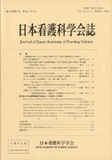Japanese
English
- 販売していません
- Abstract 文献概要
- 参考文献 Reference
- サイト内被引用 Cited by
要旨
本研究は,夜間介護が高齢介護者の循環器機能に及ぼす影響を2種類の携帯型測定機器を用いて評価し,夜間介護による循環動態の変動と健康問題へ進行する危険性について検討した.
その結果,夜間介護は運動強度としては比較的軽度であることが明らかになった.また,心拍数変化のパターン分類からは,介護に伴って著しい変動を呈す,循環器系に対する負担の大きいパターンが認められた.さらに,介護に伴う上室性期外収縮,心室性期外収縮の出現頻度の増加,或いは重症度の進展はそれぞれ27.4%,17.2%の介護者に見られた.夜間血圧のパターン分類からは,介護による睡眠の中断を契機とした血圧上昇が早朝まで持続する,いわゆるmorning surgeの引き金となりうるパターンを見いだした.
以上より,夜間介護は一部の高齢介護者にとって過剰な循環器負荷であると共に,介護者の生理的なリズムを乱したり,重大な健康問題の要因となりうることが示唆された.
Abstract
This study focused on the physiological responses to stress experienced by elderly people (over 65 years old) during the middle-of-the-night hours due to acts of caregiving, through 2 kinds of ambulatory physiological measurements. This study also looked at the ramifications of this stress.
The results were as follows: middle-of-the-night caregiving at home by the aged is categorized as a low degree load of exercise. The patterns of change of HR could be classified into 3 types, one of which involved great change and severe stress on the cardiovascular system. An increase in frequency and progression in degree of SVPCs and PVCs due to caregiving was found in 27.3% and 18.2% of the caregivers, respectively. The patterns of change of BP were classified into 3 patterns, one of which involved an elevation of BP that was initiated by caregiving and continued to the time of rising. This pattern is called a morning surge.
This study indicated that some of the elderly caregivers were obliged to take on a high degree of cardiovascular load due to caregiving, and that middle-of-the-night caregiving confused the physiological rhythm of caregivers and caused health problems.
Copyright © 1999, Japan Academy of Nursing Science. All rights reserved.


